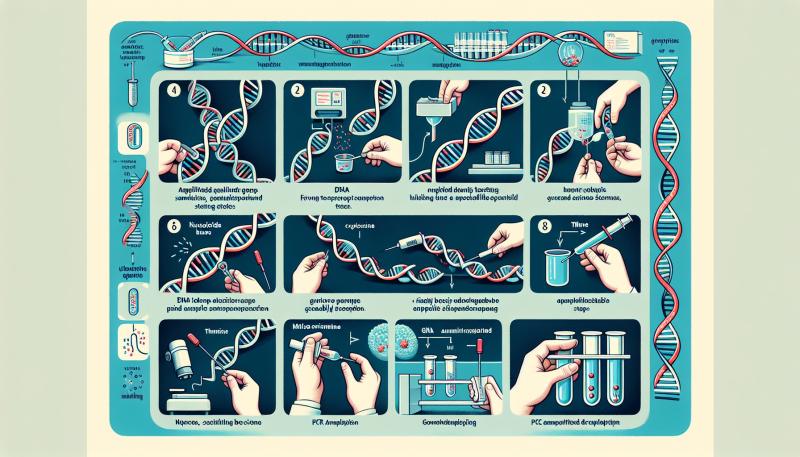
DNA Testing for Beginners: How It Works
DNA testing has revolutionized the way we understand our ancestry, health, and biology. For those new to the concept, diving into the world of DNA testing can seem daunting. This guide aims to demystify DNA testing, explain how it works, and highlight what beginners need to know before embarking on their own genetic journey.
What is DNA?
DNA, or deoxyribonucleic acid, is the hereditary material in almost every cell of the human body. It contains the instructions necessary for an organism to develop, survive, and reproduce. Given its significant role, DNA is often called the blueprint of life. Each person's DNA is unique (except for identical twins), which is why DNA testing can provide detailed insights into our personal genetic makeup.
Types of DNA Tests
Three primary types of DNA tests are commonly available to consumers:
- Autosomal DNA Tests: These tests analyze DNA from chromosomes that are not involved in determining sex. They are useful for tracing ancestry from both the maternal and paternal sides of a family and can typically follow genetic lines for about 5 to 8 generations.
- Y-DNA Tests: This type of test examines genetic information on the Y chromosome, passed down exclusively along the paternal line from father to son. It offers insights into the direct male lineage and is only available to individuals assigned male at birth.
- mtDNA Tests: Mitochondrial DNA (mtDNA) is inherited from the maternal line. Unlike Y-DNA, mtDNA is passed from mother to both sons and daughters. This test provides information about the direct maternal ancestry.
The DNA Testing Process
The process of DNA testing is straightforward and generally consists of the following steps:
- Sample Collection: DNA samples can be easily collected using a cheek swab or saliva sample. The collection kit provided by the DNA testing company will include instructions on how to properly collect the sample.
- Sending the Sample: Once the sample is collected, it needs to be sent to the laboratory for analysis. Most testing companies provide pre-paid shipping materials for convenience.
- DNA Analysis: In the lab, scientists extract the DNA from the sample and analyze it. This process involves sequencing the DNA and comparing it to large databases to find matches or traits.
- Receiving Results: After the analysis is complete, the results are typically made available through a secure online portal. Depending on the test, you can expect results in 4-8 weeks.
Understanding Your DNA Test Results
When you receive your DNA test results, they can offer a wealth of information:
- Ancestry Insights: Most DNA tests provide a breakdown of your ethnic origins and can connect you with distant relatives by identifying shared segments of DNA.
- Health Predispositions: Some tests include health screenings that reveal potential genetic markers for certain diseases or conditions. It's important to approach these results with an understanding that they only indicate predispositions, not certainties.
- Traits and Characteristics: Many tests offer additional features that examine genetic factors influencing physical traits such as eye color, hair type, and even taste preferences.
Choosing a DNA Testing Company
When selecting a DNA testing company, several factors should be considered:
- Purpose of Testing: Decide if your primary interest is genealogy, health information, or a combination of both. Different services cater to varying needs.
- Privacy Policies: Ensure the company has rigorous privacy policies and clear terms about what they do with your genetic data. Transparency about data storage, usage, and sharing is vital.
- Reputation and Reliability: Opt for well-known and reputable companies with positive reviews and reliable customer support.
- Cost: Pricing varies significantly between companies, depending on the depth and type of testing. Evaluate the cost against the features offered to determine value.
Ethical and Privacy Considerations
As you consider delving into DNA testing, it’s crucial to think about ethical and privacy implications:
- Data Security: Your genetic data is personal and sensitive. Choose a company that prioritizes data security and complies with national and international privacy regulations.
- Potential Impact on Family Dynamics: While finding unknown relatives can be exciting, it can also uncover unexpected results, such as family secrets or misattributed parentage, which may impact family dynamics.
- Implications of Health Results: Insights into genetic predispositions for health conditions can be beneficial, but also potentially distressing. It might be advisable to consult with a healthcare professional or genetic counselor.
Conclusion
DNA testing offers exciting opportunities for personal discovery, whether you're interested in exploring your ancestry, learning about potential health risks, or understanding more about your traits. As a beginner, it's important to approach DNA testing with careful consideration of the type of information you desire and the potential implications of the results.
IMS Screening Solutions offers a range of DNA testing services designed to provide accurate, secure, and insightful information tailored to your genetic interests. Visit IMS Screening Solutions to discover more about how our services can support your journey into the world of DNA exploration.
